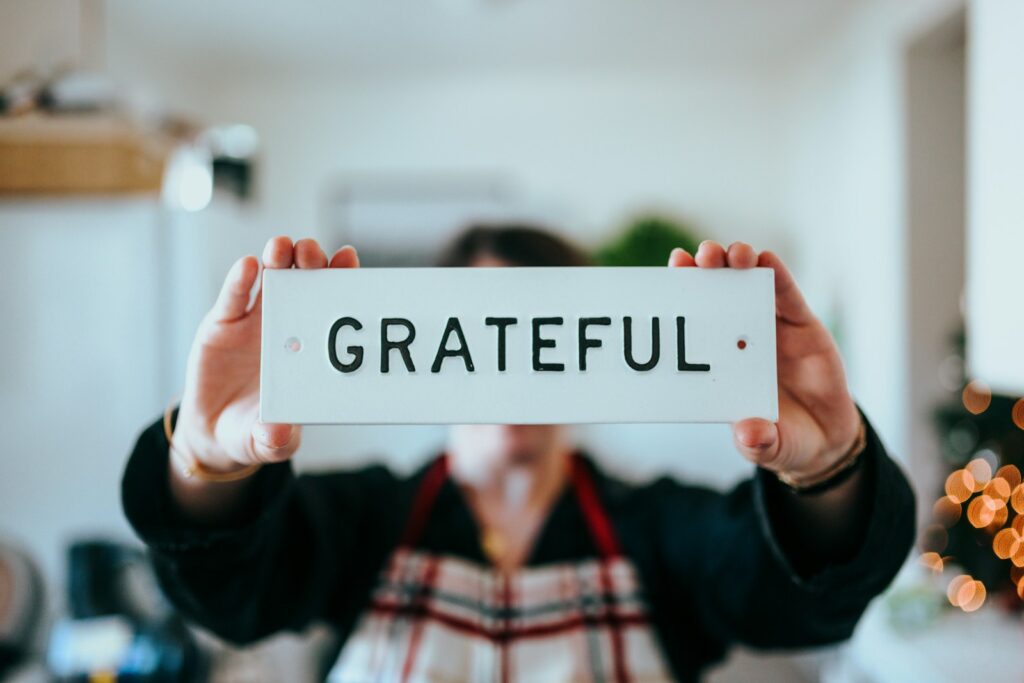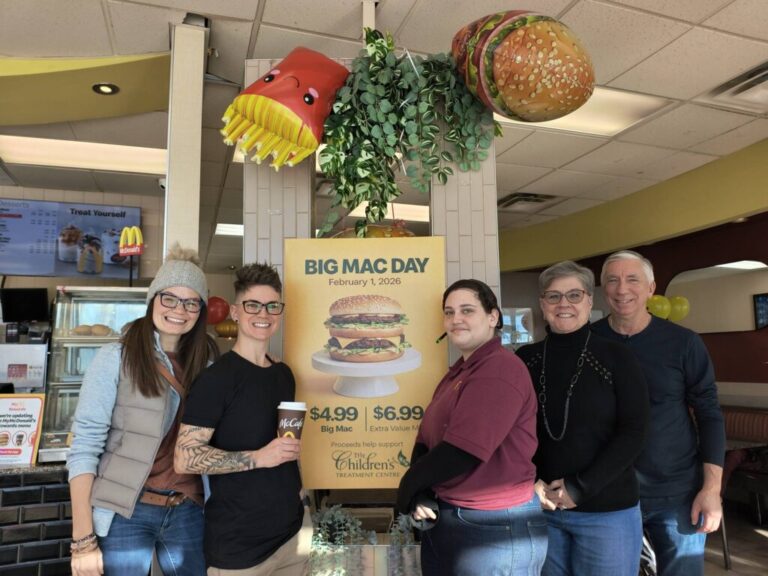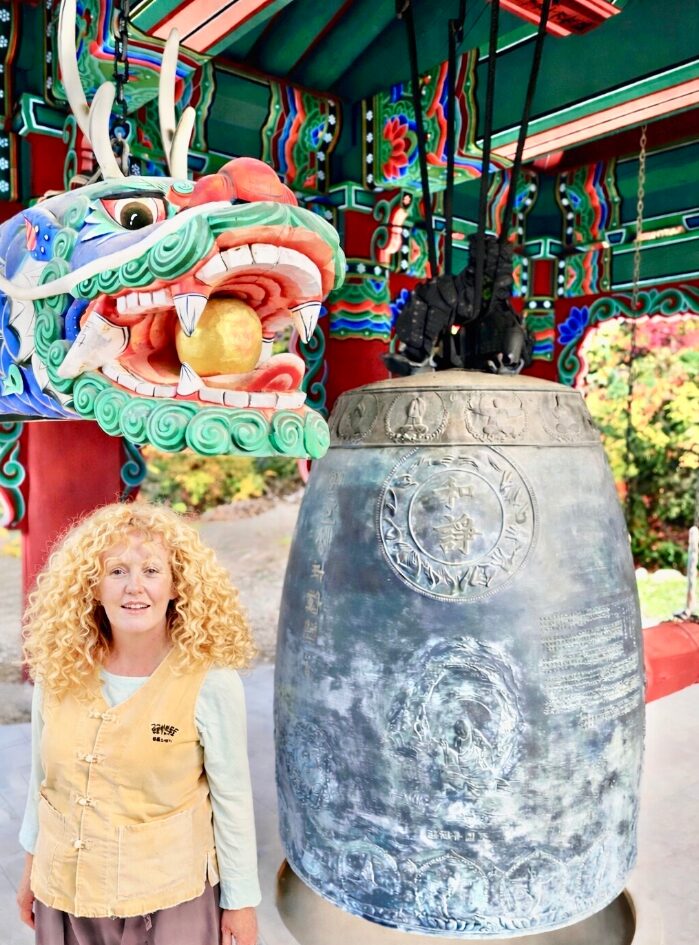
I have written about gratitude repeatedly. I have researched the benefits of gratitude on overall well-being and have integrated gratitude practices in my life. I have facilitated gratitude programs. Suffice it to say, I am a firm believer that gratitude has an uplifting effect on one’s life.
Those who know me and live in my circle of friends are frequently exposed to my gratitude practices. If you join us for dinner, Jim and I have a gratitude/grace practice that we share before we embark on the evening’s eating adventure. As a daily practice, we are continuously reminded of the abundance in our life, the simple things and the extraordinary ones, the people who have crossed our path that day and the sunshine pouring in the window, the wonder of a beautiful bouquet or a V of geese traversing the sky. You see gratitude is not complex. It is an issue of paying attention, of noticing what surrounds you, of seeing the abundance you already have and as a result, feeling the power of positivity that results.
And I am repeatedly surprised, with some of my acquaintances and new friends, that few people are aware of the power of gratitude. Despite celebrating Thanksgiving annually, few understand the power of being thankful as a daily practice. I do not use power loosely here, for gratitude is just that. It is an essential component of the Law of Attraction, of enabling you to shift the energy in your life and in healing.
In a recent e-mail from a long-time friend, Caroline shared the impact gratitude is currently having in her life. Eighteen months ago, she lost her husband. They had been married for 58 years.
In her note Caroline revealed the following:
“Thanks to a recommendation from a friend who lost her husband two years ago, I am benefiting from sessions with an excellent psychotherapist. In my last session, she (the therapist) suggested that instead of focusing on what I miss about Arnold, I focus on gratitude for what he brought to my life and what we shared together. That is what I’m starting to do and I feel much lighter and more joy.”
On an early Sunday morning a couple days later, reading Huff Post, a favourite monthly newsletter, Ariana Huffington wrote the following, in her reflections regarding American Thanksgiving:
“Gratitude is perhaps our most powerful and profound emotion. It’s our gateway to grace. It’s no coincidence that gratitude shares the same Latin root — gratus — as the word grace. So, in addition to a day of gratitude, we can choose to live in a state of gratitude — and thus in a state of grace.
Gratitude is the greatest antidote to stress and anxiety. When you find yourself in that ‘stop-the-world-I- want-to-get-off mindset’, gratitude is the brake lever. It helps us reset and gives us perspective. We think of gratitude as a coda, an add-on, something that comes at the end. But in fact, gratitude is the beginning. And when we practice it, it sets off a chain reaction of positive benefits.
Cicero wrote that “gratitude is not only the greatest of virtues but the parent of all the others.” This wisdom has since been confirmed by a mountain of hard science, as the list of what gratitude can do is seemingly endless.
Martin Seligman, of the University of Pennsylvania — and one of the founders of the field of positive psychology — has shown that the benefits of a single gratitude exercise — in one study, writing and delivering a thank you letter — can last for an entire month.
Gratitude has also been found to lower levels of stress and depression, and improve sleep. Researchers at the University of California, San Diego found that gratitude exercises can lower levels of inflammation, which improves heart health. In adolescents, gratitude has been found to reduce materialism and increase generosity, and lead to healthier eating. At the other end of life, gratitude has been found to reduce loneliness in the elderly.
Developing an Attitude of Gratitude
For the best results, gratitude needs to be embedded in your life, in other words, it becomes a daily ritual of habit.
As Ariana suggested, “ try working gratitude into your life through habit-stacking. This is the proven practice of creating a new habit by “stacking” it onto an existing habit.
An easy method: Think of three things you’re grateful for while brushing your teeth or during some other part of your morning or evening routine. It’s a way of adding meaning to mundane moments — and without having to find any more time in your day.
Personally, I end my day in gratitude, reviewing my day just before I go to sleep and being grateful for the many happenings, conversations, activities and surprises that the day offered.
“Finding a way to give yourself the gift of gratitude. It’s a small miracle and it’s available to all of us, all the time.”
Establishing a Practice With the new year, give yourself permission for some Radical Self-Care.
Five Easy Pieces:
1. Begin with gifting yourself daily ME FIRST Time, 1% or 15 minutes of your day dedicated for self- care, reflection, meditation or prayer.
2. Embed gratitude as part of your 15 minutes, writing down 5-8 things for you are grateful that day.
3. Begin each day with one or more intentions; ask yourself “who am I being today?” or “what am I choosing to attract today?”
4. Pay attention to the subtle signs that your intention is happening. These are often so nuanced that if you don’t pay attention they will fly on by.
5. When you notice things you love happening, pause and appreciate them, acknowledge the shifts, savour them.
Final Word Let’s not kid ourselves, life can be challenging in many different ways. On a good day, the world is chaotic. In the end, only you can change how you respond, what actions you take and how you care for YOU. Gratitude can be your saving grace, the daily practice that can lift you up and help you see what is truly important in your life, leading you to greater health and well-being.
Until Next Time: Betty Healey for RoadSIGNS
Your thoughts and strategies are always welcome and if you care to share, you can reach me at: [email protected]











